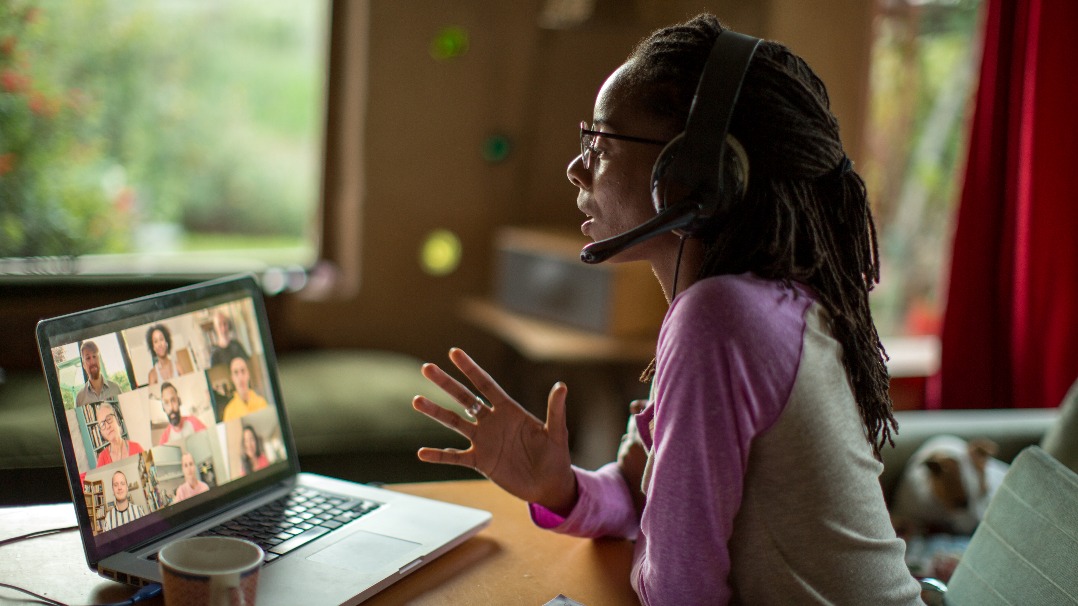
Virtual work offers flexibility and convenience – but as many people at Cigna and other places of work have learned over the past year, it means missing out on impromptu conversations with colleagues about shared hobbies or family updates in the hallway, at the water cooler, or on a coffee break.
If building relationships happens between meetings, then COVID-19 has disrupted the way employees connect, which can impact their mental health. Employers were essential in helping employees transition to safer work environments during the pandemic, and they are essential now in helping employees build and maintain personal connections in flexible work arrangements. Doing so will strengthen individual and workforce well-being, and ultimately business performance.
Investing in workforce well-being makes business sense
Cigna’s loneliness research [PDF] 1 found that people who don’t have good relationships with their coworkers are 10 points lonelier than those who do. The research also found that remote workers are more likely than non-remote workers to always or sometimes feel alone.
Separately, a recent Economist/Cigna study 2 found that a majority of business executives believe investment in employee health and well-being has a direct impact on a company’s financial performance. They report the most significant business outcomes of a healthy workforce include: greater productivity, stronger staff morale and motivation, and greater retention and loyalty of employees.
The study also found that one way employers can support employee well-being is to establish a culture of health, or a work environment that promotes well-being through organizational commitment, leadership support, regular measurement, employee engagement, and effective wellness support.
Building connections in a virtual setting
This research inspired Cigna to help employees make meaningful connections in the new virtual workplace.
Based on a program developed by Cigna’s Health Equity Team and Enterprise Resource Groups for Cigna employees to strengthen personal relationships among colleagues, Connection Circles3 is an approach to promote overall wellness, reduce loneliness, and increase resiliency in the workforce and community. The goal of the program is to have participants learn the importance of making meaningful connections, learn skills to engage with others on a deeper level, and gain a better understanding of self-care.
“We have all experienced levels of stress and anxiety since the start of the pandemic, and what has made it harder to process those feelings has been the lack of social interactions with others,” said Gail Smith, one of the facilitators from Cigna's Behavioral Center of Excellence (BCoE). “In a virtual setting, making personal connections is extremely difficult. It’s easy to lose track of the fact that on the other end of an email is a person who experiences emotions just like you. This program allows individuals to connect better with colleagues and gives them the tools to teach others how to do the same.”
Each Connection Circle is limited to 12-15 participants who agree to meet for six 40-minute sessions over the course of approximately three months. Keeping the group small allows for greater engagement from the participants, according to Smith, as anything larger can be challenging to ensure an open and transparent dialogue.
Each discussion is led by a licensed behavioral clinician with the intention of training circle participants to be facilitators to keep the circles going within their own workforce. Prior to each session featuring a new topic, participants are asked to review videos and articles, and then share what they learned and what they put into practice between sessions.
“We want this to be a valuable, continuous learning experience,” said Smith. “The goal is to put learnings from each session in to practice quickly so people start to build new habits while the information is fresh.”
“Providing our staff with resources to help them focus on their wellness has always been a priority for us, but this year, we worked really hard to support staff, students and families through the pandemic,” said Ashley Sanders, mental health program specialist for Seminole County Public Schools in Florida. “In our district, we have a mental health team who participated in the Connection Circles program through Cigna, and loved it. It not only gave them a chance to focus on their own wellness, but since it’s a train-the-trainer model, they are now able to offer this program to colleagues and pass on the valuable insight they learned.”
1 These are the findings from an Ipsos poll conducted July 16 to August 2, 2019, on behalf of Edelman and Cigna. For the survey, a sample of 10,441 adults ages 18 and over from the continental United States, Alaska and Hawaii were interviewed online, in English. More information available at www.cigna.com/about-us/newsroom/studies-and-reports/combatting-loneliness.
2 These are findings from Economist Intelligence Unit/Cigna January 2021 online study among 1,800 participants working full-time, including 600 senior executives (director and above for employers) and 1,200 employees. More information available at healthyworkforce.economist.com/infographic.
3 This program is available to Cigna Total Behavioral Health clients.